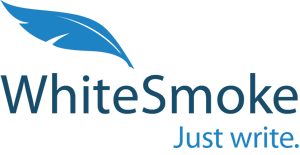The Effect of Guided Inquiry-Based Practicum Learning and Prior Knowledge on Learning Outcomes and Science Process Skills of High School Students on Solubility and Solubility Products
Abstract
Abstract: This study aimed to compare the students’ learning outcome and science process skill that learned by two different methods viewed from prior knowledge. This study used the quasi-experimental design. The research‘s instruments were student‘s learning outcome and science process skill test. Data were analyzed using by MANOVA. The results showed that: (1) there was differences in student‘s learning outcome and science process skill that learned with guided inquiry based laboratory activities and verification based laboratory; (2) there was no interaction between learning methods in laboratory activity and prior knowledge on student‘s learning outcome. Thus, the guided inquiry strategy has enhanced student’s learning outcome and science process skill.
Key Words: guided inquiry, laboratory activity, prior knowledge
Abstrak: Penelitian ini bertujuan untuk mengetahui perbedaan hasil belajar dan keterampilan proses sains siswa yang dibelajarkan dengan dua metode berbeda ditinjau dari pengetahuan awal. Penelitian ini menggunakan rancangan penelitian eksperimen semu. Instrumen pengukuran yang digunakan dalam penelitian ini adalah tes keterampilan proses sains dan hasil belajar siswa. Data dianalisis menggunakan MANOVA. Hasil penelitian menunjukkan bahwa: (1) ada perbedaan hasil belajar dan keterampilan proses sains siswa yang dibelajarkan dengan praktikum inkuiri terbimbing dan praktikum verifikasi, (2) tidak terdapat interaksi antara strategi pembelajaran dalam kegiatan praktikum dan pengetahuan awal terhadap hasil belajar siswa. Simpulannya adalah praktikum inkuiri terbimbing dapat meningkatkan hasil belajar dan keterampilan proses sains siswa.
Kata kunci: inkuiri terbimbing, kegiatan praktikum, pengetahuan awal
Keywords
Full Text:
PDFReferences
Abdi, A. (2014). The effect of inquiry-based learning method on students’ academic achievement in science course. Universal Journal of Educational Research, 2(1), 37–41.
Blanchard, M. R., Southerland, S. A., Osborne, J. W., Sampson, V. D., Annetta, L. A., & Granger, E. M. (2010). Is inquiry possible in light of accountability?: A quantitative comparison of the relative effectiveness of guided inquiry and verification laboratory instruction. Science Education, 94(4), 577–616.
Bonomo, R. P., Tabbi, G.,& Vagliasindi, L. I. 2011. Solubility and product determination of a sparingly soluble salt: A first-level laboratory experiment. Journal of Chemical Education, 89(4), 545–547.
Sen, C., & Sezen Vekli, G. (2016). The impact of inquiry based instruction on science process skills and self-efficacy perceptions of pre-service science teachers at a university level biology laboratory. Universal Journal of Educational Research, 4(3), 603–612.
Chin, C., & Chia, L. G. (2008). Problem-based learning tools. The Science Teacher, 75(8), 44–49.
Chun, Y.L. & Ming, J.C. (2014). The impacts of virtual manipulatives and prior knowledge on geometry learning performance in junior high school. Journal Educational Computing Research, 50(2), 179–201.
Domin, D. S. (2007). Students’ perceptions of when conceptual development occurs during laboratory instruction. Chemistry Education Research and Practice, 8(2), 140–152.
Effendy. (2016). Ilmu Kimia untuk siswa SMA dan MA. Malang: Indonesian Academic Publishing.
Harlen, W. (2014). Helping children’s development of inquiry skills. Inquiry in Primary Science Education, 1(1), 5–19.
Howel, D. C. (2011). Fundamental statistic for the behavioral sciences, 7th Edition. United of America: Wadswort.
Kean, E & Middle Camp, C. (1985). Panduan belajar Kimia dasar. Jakarta: Gramedia
Nisak, K. (2010). Identifikasi kesulitan belajar siswa kelas XI IPA semester II SMA Laboratorium UM dalam memahami materi kelarutan dan hasil kali kelarutan (Unpublished undergraduate thesis). Universitas Negeri Malang, Indonesia.
Onder, I., & Geban, O. (2006). The effect of conceptual change texts oriented instruction on students’ understanding of the solubility equilibrium concept. Hacettepe University Journal of Education, 30, 166–173.
Rahmawati, R., Haryani, S. & Kasmui. (2014). Penerapan praktikum berbasis inkuiri untuk meningkatkan keterampilan proses sains siswa. Jurnal Inovasi Pendidikan Kimia, 8(2).
Sirhan, G. (2007). Learning difficulties in Chemistry. Journal of Turkish Science Education, 2(4), 2–20.
Trianto. (2010). Mendesain model pembelajaran inovatif progresif. Jakarta: Prestasi Pustaka.
Ural, E. (2016). The effect of guided-inquiry laboratory experiments on science education students’ chemistry laboratory attitudes, anxiety and achievement. Journal of Education and Training Studies, 4(4), 217–227.
Wenning, C. J. (2006). A framework for teaching the nature of science. Journal of Physics Teacher Education, 3(3), 3–10.
Yakar, Z & Baykara, H. (2014). Inquiry-based laboratory practices in a science teacher training program. Journal of Mathematics, Science and Technology Education, 10(2), 173–183.
DOI: http://dx.doi.org/10.17977/jps.v7i3.12521
Jurnal Pendidikan Sains Journal of Science, Mathematics, and Vocational Education Graduate School Of Universitas Negeri Malang JPS is licensed under Creative Commons Attribution-ShareAlike 4.0 International License |







